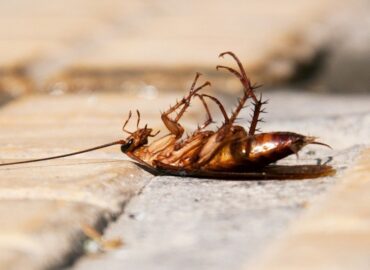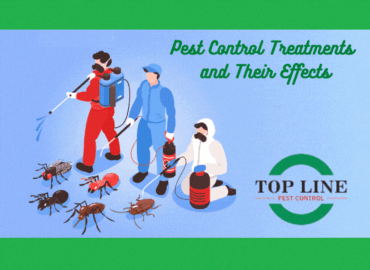Rats are not only a nuisance but also a significant threat to health and property. They are known to carry diseases, contaminate food, damage wiring and insulation, and even compromise the structural integrity of buildings.
For homeowners and businesses in Surrey, rat control is an important issue that requires prompt action to prevent infestations. This article will explore effective rat control strategies in Surrey, focusing on prevention, identification, and the best methods to eliminate and manage rat populations.
The Rat Problem in Surrey
Surrey, with its mix of urban and rural areas, provides an ideal environment for rats to thrive. Rats are highly adaptable creatures and can live in various environments, from city streets and basements to farms and wooded areas. The combination of available food sources, access to water, and shelter makes Surrey an attractive location for rat infestations.
The most common rats found in Surrey are the brown rat (also known as the Norway rat) and the black rat (also known as the roof rat). Brown rats are larger and prefer burrowing near buildings, sewers, and underground areas, while black rats are more likely to be found in attics or higher parts of buildings.
Rats breed rapidly, and a small infestation can quickly grow into a major problem if not addressed. Therefore, early detection and proactive control measures are key to managing rat populations effectively.
Signs of a Rat Infestation
Identifying the signs of a rat infestation is crucial for early intervention. The sooner you detect the problem, the easier it is to prevent the infestation from escalating. Common signs of a rat infestation include:
- Droppings: Rat droppings are small, dark, and cylindrical, often found in places where rats are active, such as along walls, in cupboards, or near food sources.
- Gnaw Marks: Rats have strong teeth and are known to chew through materials like wood, plastic, and electrical wires. If you notice gnaw marks on food packaging, furniture, or wires, it may indicate the presence of rats.
- Nests: Rats build nests from shredded materials such as paper, fabric, and insulation. You may find these nests in hidden areas like attics, basements, or behind walls.
- Urine Odour: Rats leave behind a distinct, musky urine odor that can be detected in areas they frequent.
- Sound: Rats are nocturnal and often make scratching, scurrying, or squeaking sounds, especially at night when they are most active.
Steps for Effective Rat Control in Surrey
Rat control in Surrey requires a comprehensive approach that combines prevention, monitoring, and elimination. Here are some of the most effective strategies for dealing with rat infestations:
1. Prevention: The First Line of Defence
Preventing rats from entering your home or business is the most effective way to manage rat populations. These steps can significantly reduce the risk of an infestation:
- Seal Entry Points: Rats can enter buildings through the smallest gaps, cracks, and holes. Inspect your property for potential entry points around doors, windows, vents, pipes, and cables. Seal these gaps with materials such as steel wool, caulk, or expanding foam.
- Keep the Property Clean: Rats are attracted to food and water sources. Regularly clean kitchens, dining areas, and other places where food is stored or prepared. Store food in airtight containers, and clean up crumbs, spills, and trash immediately. Ensure that pet food is stored securely.
- Maintain Outdoor Areas: Rats often nest outside before finding their way inside. Trim back overgrown vegetation, clear debris, and remove outdoor food sources, including bird seed or pet food. Secure your garbage bins with tight-fitting lids to prevent scavenging.
- Fix Leaks and Manage Water: Rats need water to survive, so leaky pipes, clogged drains, and standing water attract them. Repair any plumbing leaks, and ensure that gutters are clear of debris.
2. Rat Traps and Baiting
Once you’ve taken preventive measures, it’s time to tackle the existing rat population. The most common methods for rat control include traps and baiting:
- Snap Traps: These traps are one of the most effective and humane ways to capture and kill rats. Snap traps should be placed along walls, where rats are likely to travel. Use attractive bait such as peanut butter or dried fruit to lure the rats.
- Live Traps: If you prefer a humane method, live traps capture rats without killing them. After catching the rats, you can release them far away from your home. However, live traps require frequent monitoring to avoid stress or harm to the rats.
- Bait Stations: Bait stations contain poison that attracts rats. The bait is typically slow-acting, which allows rats to return to their nests before dying. However, caution must be exercised with these methods, especially if you have pets or children, as the poison can be harmful to non-target animals.
- Poison Bait Blocks: In cases of severe infestations, professional pest control services may recommend poison bait blocks. These should only be used with professional guidance, as improper use can lead to risks for other animals and humans.
3. Professional Pest Control Services
If the infestation is widespread or difficult to control on your own, seeking help from a professional pest control service is a wise decision. Pest control experts in Surrey have the tools, expertise, and knowledge to handle rat infestations safely and efficiently.
Professional pest controllers will:
- Conduct a thorough inspection of your property to identify the extent of the infestation and potential entry points.
- Set up the appropriate traps and baits in strategic locations to capture and eliminate rats.
- Provide advice on long-term prevention strategies to ensure rats do not return.
- Offer ongoing monitoring and follow-up services to ensure the problem is fully addressed.
4. Sanitation and Maintenance
After addressing the immediate rat problem, ongoing maintenance and sanitation are crucial to ensure that rats do not return:
- Regularly Inspect for Entry Points: Keep an eye out for new gaps or holes around the property. Seal them immediately to prevent rats from re-entering.
- Keep the Property Tidy: Continue to store food properly, dispose of garbage regularly, and clean up after meals. Also, keep your outdoor space free from clutter and debris where rats may seek shelter.
- Consider Rodent Deterrents: Some homeowners use natural deterrents such as peppermint oil or ultrasonic rodent repellent devices. These can sometimes help deter rats from settling in specific areas.
Conclusion
Rat control in Surrey is a serious issue that requires timely and effective intervention. The key to preventing rat infestations lies in early detection, proper sanitation, sealing entry points, and using appropriate control methods such as traps and baiting. In cases of large or persistent infestations, professional pest control services are essential to fully eliminate the problem and prevent future invasions.
By adopting these strategies and staying vigilant about cleanliness and maintenance, you can ensure that your home or business in Surrey remains free from rats and other pests, creating a safer, healthier, and more comfortable environment.




